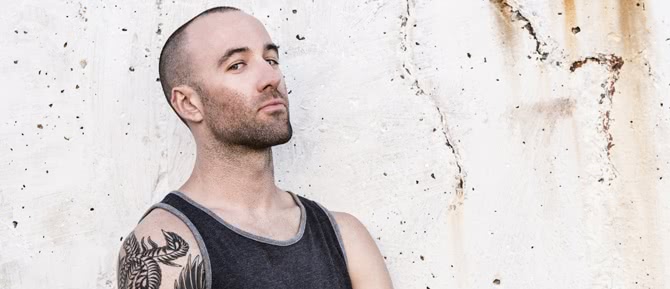There’s any number of things that might encourage people to have a crack at making it in the music industry. These range from the fantasy of non-stop partying and promiscuity to the promise of cathartic self-expression. But perhaps the most common catalyst is a desire to imitate the music one finds so enthralling. This is what sucked Stu Tyson, AKA Bass Kleph, into the world of electronics back in 2000 – and the Sydney-born, LA-based DJ and producer hasn’t considered another vocation since.
“Because I was obsessed with the music, I wanted to learn how to write it,” he says. “Then DJing came about because I wanted people to hear this music that I was obsessed with. I was, like, 16 and I’d just play at everybody’s house party I could for free.”
These days Bass Kleph is a year-round touring DJ and an electro/house musician with a slew of Beatport chart-topping singles to his name. Nevertheless, his passion for new and exciting music hasn’t dwindled. In fact, alongside his success onstage and in the studio, Tyson presents the monthly online radio broadcast Klephtomania and is the founder and head of Vacation Records.
“The radio show stuff came about, again, because I wanted more people to hear [the music I love],” he says. “It’s another way to play to people when you’re not in a nightclub. [It’s] a different format where you’re not thinking about the dancefloor, you’re playing the tracks you like.
“The label came about because I was with another label and there was some problems. At one point I was stuck in a contract exclusively and they weren’t releasing my music because they didn’t have their shit together. I said to myself, ‘If I can ever get out of this situation I’m just going to start my own label.’ My friends had similar problems too and I was like, ‘This way all of us can be sorted and we can get our tracks out,’ and you know, ‘Here’s a song I’ve written – now it’s available.’ It should be that simple.”
With all of these responsibilities to take care of, Tyson’s surely at risk of overworking himself. Conversely, he explains that the separate pursuits exist in mutually contributive accord.
“For me to scour music for my radio show, through promos and through buying tracks, that sets me up with my favourite songs for the next month that I’m going to be DJing. It’s also going to inspire me for what I’m going to be working on writing and it’s going to inspire me for what I’m going to be looking for to sign to the label. Everything crosses over.”
Over the last handful of years the mainstream pop world has embraced underground electronic production. This has attracted masses of attention towards the electro scene and subsequently given birth to innumerable aspiring producers. Being the industry polymath that he is, Tyson is acutely aware of the ramifications of the spotlighted interest.
“I think these days, because it’s so popular and everything, you do get some people just attracted to it because of the bright lights of it all,” he says. “Because I’m always listening to so many tracks for my radio show and I listen to so many demos for my record label, I’ll start to hear certain things that are overdone.
“There’s enough good producers writing interesting, fresh stuff, but there’s so many people just rehashing the same shit. I get a lot of stuff sent to me from Russia and parts of Europe where they’ve basically just copied a big song by somebody. They’ve done it very well, but there’s nothing new in there.”
Despite how tiresome it is to hear a trend being exploited until all possible allure disappears, this does provide a useful reminder to include some personality in one’s own output.
“Watching those sorts of trends makes me go, ‘OK there’s enough of that out there already, what can I write that’s going to innovate rather than duplicate?’” Tyson says. “Over the years I’ve seen a lot of [fads] come and go and I don’t really pay too much attention to them anymore. There’s a lot of things that pop up and disappear, but if I passionately, honestly believe in certain sounds and styles then I know that’s the right one I should follow.”
Bass Kleph has been based out of LA for the last two-and-a-half years and during this time the producer’s profile has grown considerably. A major boost came late last year from a US tour supporting Wolfgang Gartner and countryman Tommy Trash. As well as being Tyson’s good mates, Gartner and Trash are both past collaborators and on the Vacation roster. While he’s not tempted to mimic passing fads, Tyson admits the work of his talented associates is a big motivator.
“They’d play me something they’re doing and I’d just be like, ‘That’s awesome! I’ve got to work harder.’ Me and Tommy used to live together for a year and a half when we were both in Sydney and that would happen all the time. We’d always be playing each other stuff we were working on and be like, ‘You just gave me so many ideas for something, I’m going to go and write a couple of tracks now.’”

































